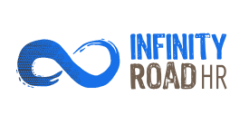|
It’s 2017. You’re probably reading this post on your smartphone while flipping back and forth between your social media apps. If you’re not using HR software to automate your small business processes by now, maybe it’s time to reconsider.
For years, I worked in a small business tracking HR stats and metrics on an Excel spreadsheet. Why? At the time, most HR systems were geared towards mid-sized to large organizations and simply were not cost effective for small businesses. Today, there are an abundance of options. In fact, I would venture to say the market is “saturated” with small business HR software that can automate just about everything. So, small business owners no longer have the “not cost effective” excuse to hide behind. On the contrary, it is simply not cost effective to go without HR software when you count up the number of hours spent on manual tracking and data entry (and fixing data entry errors). Although I am an HR professional, I also consider myself to be an HR technology nerd. I have a knack for digging in and exhausting system features, and if there is a bug to be found I’m usually your girl. So, in the course of running my consulting business, I’ve demoed and tested dozens of HR software systems (i.e. HRIS, performance management, ATS, benefits administration, etc.). I have also been retained by clients to help them research, demo and test systems, and subsequently provide implementation and customization support after they have selected their “right fit”. So what exactly does "right fit" mean? At their core, HR software systems do the same things. Most can be manipulated to fit your work processes, but they all have differentiators that make them special. Choosing the right system(s) is a bit like choosing who to date. First, you have to decide what qualities (i.e. features) you are looking for in a software “mate.” Then, you have to decide which of those is most important to you (the non-negotiable must-haves). Once you have narrowed that down, you know where to start. I’ve found that many traditional HR systems were born from payroll products - the costly big guys who most people have heard of (and many small companies still use). They have tried adding HRIS, performance, benefits, training and ATS modules on to their payroll solutions, but they often come with a hefty price tag, marginal to poor customer support, and/or half-baked "custom" features. So, whether or not your small company is willing to change payroll providers plays an important role in selecting the right HR system. If you are willing to change, then there are some very cost-effective end-to-end solutions that do a fantastic job of automating processes all the way from recruiting to employee exit. If you are happy with your payroll provider and don't want to change, then there are core HR systems with partner or add-on modules that can integrate with existing payroll, resulting in custom end-to-end solutions. (The biggest challenge with the latter approach is when the various systems can’t be accessed via single sign-on, and you end up with a bunch of logins and different looking interfaces, which can be frustrating for you and the employees.) Either approach can work, but integration and automation are the keys. One of my favorite clients to date has given me free reign to automate their end-to-end processes through the use of HR software. When a new employee joins their organization, the entire system of on-boarding (i.e. tedious paperwork), entering them into payroll, and enrolling them in benefits (i.e. more tedious paperwork) takes about 10 - 20 minutes for HR, and 20 – 30 minutes for the employee. No paper forms, no emailing attachments, and a pretty impressive first impression for the new hire. And, since the employees enter almost all of the information themselves, the margin for error is extremely low. The software also manages (among other things) self-service changes, online employee files, performance reviews, tracking training and assets, and processing exits. The cost? For each employee, the total monthly amount is roughly equivalent to what it might cost to buy them a few cups of coffee. For small companies who don't have the luxury of employing a dedicated HR professional, HR automation is essential. If you are interested in exploring HR software for your small business, there's no better time than now. We can help, and your bottom line will thank you.
0 Comments
|
Infinity Road HR, LLC 2013

 RSS Feed
RSS Feed